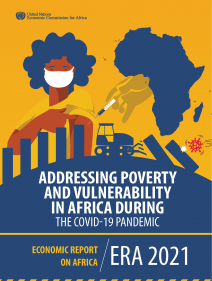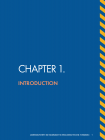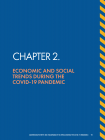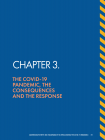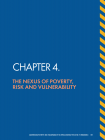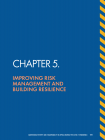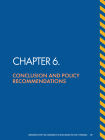Addressing poverty and vulnerability in Africa during the COVID-19 pandemic” is the theme of the 2021 Economic Report on Africa. The report provides a perspective of the causes and consequences of increased poverty due to the COVID-19 pandemic, as well as from other shocks such as an oil price collapse, within a vulnerability–poverty–resilience framework, providing national estimates of people vulnerable to falling into poverty in different country clusters. The principal messages of this report are that poverty in Africa is highly dynamic and that poor people move into and out of poverty because of consumption volatility arising from exposure to risks caused by shocks like the COVID-19 pandemic and that their inability to manage uninsured risks only increases their vulnerability. Poverty in Africa is also geographically centralized, and two commodity exporting countries, the Democratic Republic of the Congo and Nigeria, account for a large share of the continent’s poverty. The report provides policy recommendations for Member States to devise policies that not only reduce immediate poverty (ex-post) but also reduce vulnerability to poverty (ex-ante). Recommendations do not just aim to expand social assistance but also to build assets and strengthen social infrastructure to promote growth and improve households’ capacity to manage risks and maintain resilience against future shocks. Such capacity is particularly important for building forward better after the COVID-19 pandemic.
Share this:
Addressing poverty and vulnerability in Africa during the COVID-19 pandemic
Release Date:
12 May, 2022
© United Nations Economic Commission for Africa

